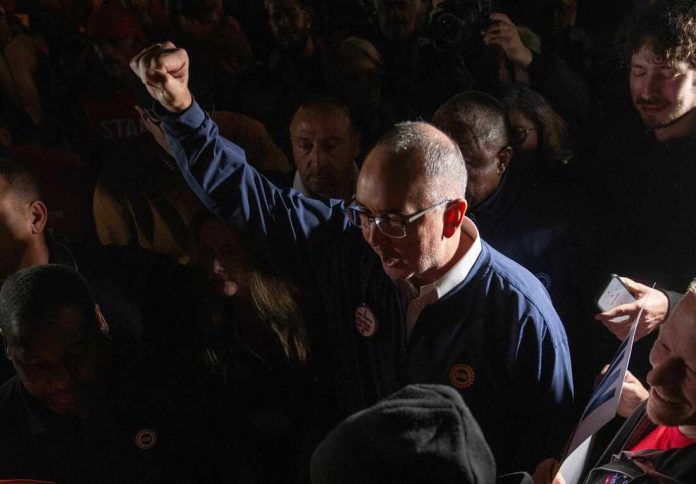The United Auto Workers union has threatened to expand the scope of its ongoing strike if no headway is made in contract negotiations with Detroit automakers before Friday, September 22.
In a video statement, United Auto Workers president Shawn Fain warned Stellantis, Ford and General Motors executives that “serious progress” would need to occur in the coming days to avert additional employee walkouts. “Autoworkers have waited long enough to make things right at the Big Three,” he commented. “We’re not waiting around, and we’re not messing around. So, noon on Friday, September 22, is a new deadline.” Chief among the union’s demands is a 36% pay increase and an end to wage tiers across Detroit manufacturers.
The ultimatum arrives as roughly 12,700 United Auto Workers members enter their fifth day of strikes at three plants in Ohio, Michigan and Missouri. In response to work disruptions at these facilities, Ford has temporarily laid off 600 employees, while General Motors has warned it may cut up to 2,000 positions in the coming days. Should the union call for more workers to join the strike, the number of affected facilities will expand, resulting in additional layoffs as more departments lose workers and part shortages worsen.
While Detroit automakers and the United Auto Workers union have dominated the news cycle in recent weeks, a prolonged strike poses substantial risks to all automotive sectors, including dealers, suppliers and consumers. As production slows at OEM facilities, materials and parts orders will decline, placing supplier revenue at risk and opening the door to layoffs. Retailers on the cusp of defeating inventory constraints caused by the COVID pandemic are again facing the possibility of vehicle shortages in the coming weeks. Supply disruptions are likely to drive up already inflated prices just as new car affordability is starting to show signs of improvement. Sticker-shocked customers may simply choose to wait out the market until conditions improve, affecting both OEM and dealer earnings. By the September 22 deadline, the UAW will have been on strike for only a week, but should it fail to end its stalemate with automakers in time, the effects could last for months.





